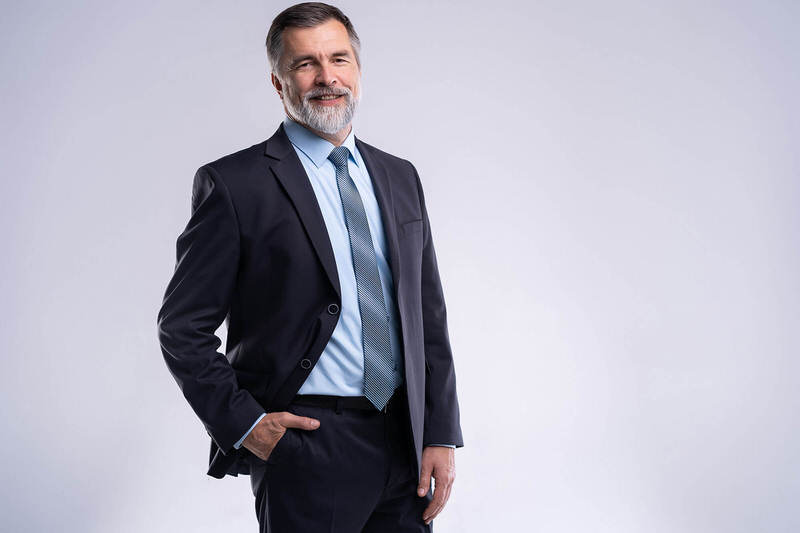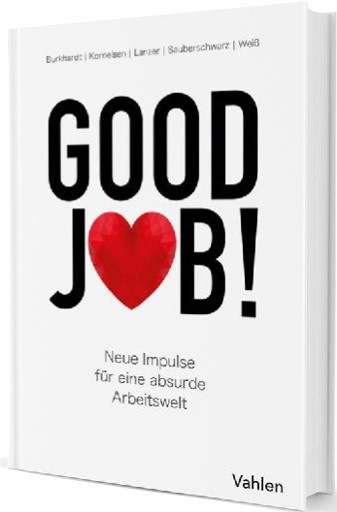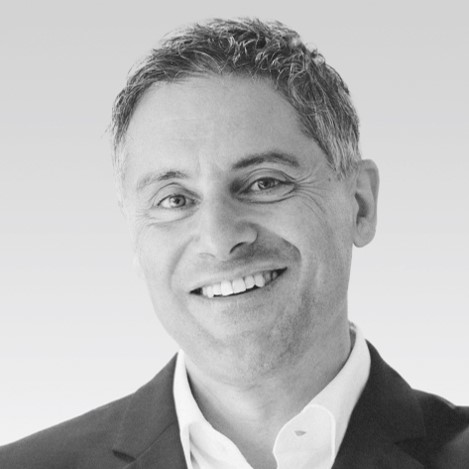




- Center for Strategic Management
- Center for Innovation
- Center for Start-up-Management
- Center for Digital Business Transformation
- Center for Governance & Compensation
- Center for Sustainability Management
- Center for Executive Coaching
- Center for Leadership
- Center for Change Management
- Center for Personal Leadership & Motivation
- Center for New Work
- Center for Communication
- Center for Rhetoric
- Center for Neuro Intelligent Leadership
- Center for Marketing Management
- Center for Brand Management
- Center for Online Marketing & Social Media
- Center for Resilient Marketing
- Center for Sales Communication
- Center for Financial Management
- Center for Mergers & Acquisitions
- Center for Controlling
- Center for International Management
- Center for Asia
Center for New Work
Due to globalization, demographic change, digitization and flexibility, we are currently witnessing the rapid development of a new working world. However, most companies are still using strategies from the last century. But when linear thinking, efficient standardization, and hierarchical decisions are not working anymore in a world that is increasingly complex, changing and uncertain, it's time to align companies with the new working world. Companies will only be successful in the future if organizational and work models as well as work culture and places are in line with new market realities and employee needs. But what are the relevant levers and which approaches and solutions work in practice?
“New work" is the buzzword of our time. Some companies are already trying to align with new market realities and employee needs. However, far too often this is done with conventional, old and blunt methods. But standardized solutions and strategies do not work in this new working world. Instead, tailor-made solutions must be developed that optimally meet the individual needs of employees while taking into account an increasingly complex business environment. Various studies show that increasing employee satisfaction leads to significantly higher productivity. This is precisely where efforts must be made in order to sustainably increase the performance and competitiveness of the company by using appropriate "New Work" methods.
The Center for New Work applies strategies, processes and measures to guide companies into the new working world by taking employee needs into account to increase the company success and competitiveness.
Corporate Programs
In corporate programs, new work strategies and measures can be effectively learned and applied based on specific challenges. Executives, managers and employees can thus incorporate new impulses directly into the corporate context and make practical use of learned strategies and measures, e.g.:
- Development of a tailored New Work strategy based on a company specific audit (also possible for individual teams or departments)
- Development & management of impactful New Work measures to increase employee satisfaction and company performance
Consulting Services, Workshops & Keynote Speeches
- New Work Audit for individual teams, departments or the entire company
- Creating a specific evaluation-framework for New Work measures
- Development of a New Work strategy incl. a dedicated strategy roadmap
- Conception of concrete, targeted New Work measures
- Implementation and guidance through organizational transformation
- Impulses and lectures on the topic of “New Work”
Publications
Head
Daniel Schmidlin, lic.oec.HSG
Executive Director Corporate Programs and Director of the Center for New Work at SGMI Management Institute St. Gallen
Daniel Schmidlin studied business administration at the University of St. Gallen (degree lic.oec. HSG) with specialization in organizational development. He has a proven track-record in the field of management development. As Director Corporate Programs he is responsible for the worldwide project business of the SGMI Institute of Management St. Gallen including conceptual design and implementation of integrated management development projects based on the St. Gallen model of management. He analyses strategic development needs and creates focused development programs for our customers together with the SGMI expert-team.
Being a recognized leadership expert he offers a year-long experience as lecturer, coach and consultant. His focus is on leadership behaviour and leadership tools for small and medium-sized businesses as well as multinational companies:
- Leadership-style analysis
- Personality analysis
- Employee engagement and –motivation
- Value-based leadership
- Personal strength-/weaknesses analysis
- Leadership concepts of the future (generation Y)
- Paradigm shift
- Communication, negotiation and conflict management
He is training international managers in German- and English-language seminars for years and with highest customer satisfaction. As an executive coach he directly supports decision-makers of all levels.
Andreas Seitz
Co-Director of the Center for New Work at SGMI Management Institute St. Gallen
Andreas Seitz is a literature, linguistics and marketing graduate from Munich University. As a member of the executive board, he was involved in the successful development of the media company RTL Disney. For more than 20 years, he has accompanied development processes on an organizational level as a consultant, advising more than 50 CEOs in change projects, working for more than half of the DAX corporations while implementing projects in Europe, North America and Asia. One focus of his work is cultural change and the development of cultures of trust and agility with a view to the future challenges in organizations. He is a trained consultant for organizational and team development and is certified as a consultant for the Richard Barrett Cultural Transformation Tools (CTT) and for the Ego Development Profiles of Jane Loevinger. In his view, the future of work and the digital transformation in particular make it necessary to launch evolutionary development processes and to involve people in shaping the future instead of following the old unfreeze-change-freeze paradigm. As a book author, he has published "Agility of Tomorrow - Leading in the Future", "Leading through Crisis - the Transformative Power of a Pandemic" as well as guest commentaries and essays. He shares his knowledge and experience primarily in these areas:
- New Work: Transforming organizational cultures
- Value-based culture development
- Leadership development within cultural change
- Leading Change: Bringing people along and involving them
- New forms of organization and collaboration
- Development of agile leadership mindsets
- Staged development models for organizations and their leadership
- The future of work in the context of digital transformation



